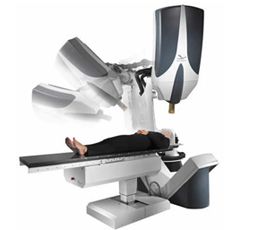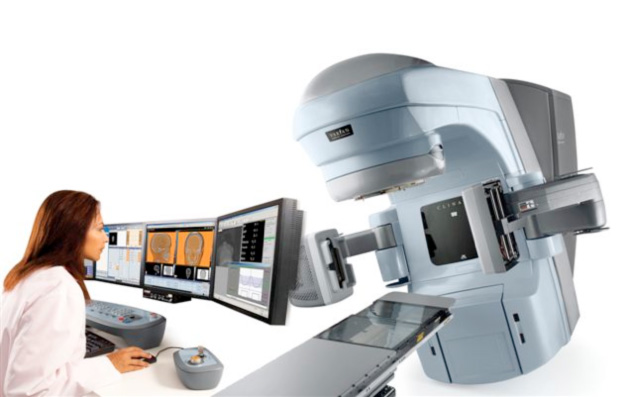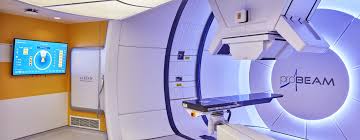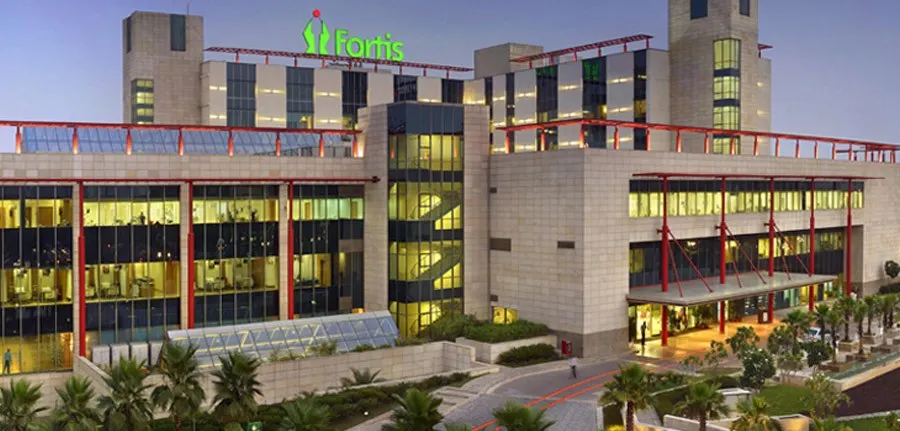Excellent Outcomes and Affordable Cost is assured.
India has become a preferred destination for radiation therapy and Radiosurgery by combining world-class clinical expertise with cost efficiency. Leading Private Hospitals in India have world class quipments like Gamma Knife, Cyberknife and Proton Treatments. The doctors and clinicians trained have top class expertise and skills and the Institutions are accredited by both JCI and NABH, reflecting adherence to global best practices. These centres employ advanced techniques—including Image-Guided Radiation Therapy (IGRT) and Stereotactic Body Radiation Therapy (SBRT)—which allow oncologists to deliver precise doses directly to tumours while sparing healthy surrounding tissue.Safety is integral to every step of the radiation-therapy process.
Before treatment begins, a multidisciplinary tumour board—comprising radiation oncologists, medical physicists, and specialised nurses—conducts a thorough review of imaging studies and patient history to tailor the optimal plan (ASTRO Quality Guidelines). During each session, real-time imaging systems verify that the radiation beam remains aligned within millimetres of the target, reducing the risk of side-effects such as skin irritation or fatigue. Dedicated side-effect management protocols ensure that any discomfort is addressed promptly, and ongoing follow-up appointments monitor recovery well after therapy concludes.
Affordability is a key driver for patients travelling from Africa. A full course of external-beam radiation therapy in India typically ranges from USD 2,400 to USD 7,800—often 60 %–80 % less than comparable treatments in the United States or Europe (WHO Radiotherapy Fact Sheet). These cost savings are made possible by efficient hospital operations and government-supported pricing, without compromising on clinical outcomes. Many international patients combine their treatment plan with cultural and logistical support, such as local accommodation and interpreter services, to ensure a smooth journey.
In the sections that follow, we will explore the specific radiation-therapy modalities available in India, break down typical package inclusions and pricing structures, and walk through the patient experience step by step. By the end, you will understand why radiation therapy in India represents a compelling balance of clinical excellence, safety, and value for international patients.
✅What is Radiation therapy-based Radiosurgery and what are its main modalities?
✅What advanced radiation therapy techniques are available in India?
✅Which are the top Radiation Oncology – Radiotherapy – Radiosurgery centers in India?
✅How to choose a radiation centre in India
✅What are the costs and package details for radiation therapy in India?
✅What does the patient journey look like for radiation therapy in India?
✅What are the clinical outcomes and safety measures for radiation therapy in India?
✅Frequently Asked Questions About Radiotherapy
What is Radiation therapy-based Radiosurgery and what are its main modalities?
Radiation therapy employs high-energy beams—such as X-rays, photons or charged particles—to damage cancer-cell DNA and inhibit tumour growth. In radiation therapy India, these beams are precisely shaped and directed to maximize tumour control while sparing healthy tissue (NCI Definition).
1. Image-Guided Radiation Therapy (IGRT)
- What is IGRT treatment? IGRT is a type of cancer treatment that uses imaging technologies such as PET, MRI, and CT to more accurately and safely deliver radiation to cancer cells.
- Gamma Knife is a state-of-the-art, non-invasive neurosurgical technology that does not require any incision, providing a highly precise and targeted approach to address various neurological conditions. Gamma Knife is adept at treating a wide array of neurological disorders, including: Arteriovenous Malformations (AVM), Tumours, Benign Meningioma, Acoustic neuroma, Pituitary tumours etc.
- Cyberknife – is an advanced type of IGRT system that leverages robotic technology and real-time imaging to deliver radiation therapy with sub-millimeter accuracy. The CyberKnife System has unlimited reach to treat a broad range of tumors throughout the body, including the prostate, lung, brain, spine, liver, pancreas, and kidney.
- Before each session, onboard imaging (e.g., cone-beam CT or X-ray) confirms the tumour’s exact position. Tiny adjustments—within millimetres—accommodate breathing and slight patient movement, ensuring the beam remains on target (NCI IGRT).
Benefits of Image-Guided Radiation Therapy (IGRT):
- IGRT Enables higher radiation doses to tumours with reduced exposure to surrounding organs, decreasing the risk of complications. Benefits of IGRT:
- Increased precision: IGRT allows for more accurate targeting of the tumor, even if it moves during treatment.
- Improved tumor control: By precisely targeting the tumor, IGRT can help ensure that the cancer is effectively treated
- Reduced side effects: By minimizing radiation exposure to healthy tissues, IGRT can help reduce the risk of side effects.
- Shorter treatment schedules: In some cases, IGRT may allow for shorter treatment schedules, according to Moffitt Cancer Center.
2.Stereotactic Body Radiation Therapy (SBRT)
- How does SBRT work? SBRT delivers very high radiation doses in just 1–5 sessions. Multiple beams converge at precise angles on small, well-defined tumours (e.g., lung, liver) to achieve potent local control (ASCO SBRT Overview).
- Advantages: Fewer hospital visits, shorter overall treatment time, and excellent control rates—often above 85 % for early-stage lesions.
3.Intensity-Modulated Radiation Therapy (IMRT) vs. Three-Dimensional Conformal Radiation Therapy (3D-CRT)
- 3D-CRT: Shapes uniform radiation fields based on three-dimensional tumour contours. Typical session duration is 15–30 minutes, including patient setup and imaging
- IMRT: Advances on 3D-CRT by varying beam intensity across treatment segments, allowing even greater dose conformity to the tumour while protecting adjacent critical structures. Sessions may take up to 30–45 minutes.
- Key difference: IMRT’s variable intensities provide superior sparing of healthy tissue compared to the uniform beams of 3D-CRT
4. Procedure Steps & Session Details
- Consultation & Planning: CT/MRI scans are obtained; a multidisciplinary team—including oncologists, physicists and therapists—designs a personalized treatment plan.
- Simulation: The patient is positioned using customized molds or masks to ensure reproducible setups across sessions.
- Treatment Delivery: Sessions are typically scheduled once daily, five days a week, over 3–7 weeks (totaling 15–35 sessions, depending on cancer type and stage).
- Side-Effect Management: Common side effects—such as skin irritation, fatigue and mild nausea—are managed through topical agents, nutritional support and routine monitoring (NCI Side Effects).
By understanding these modalities—IGRT, SBRT, IMRT and 3D-CRT—patients considering radiation therapy in India can make informed decisions that balance treatment effectiveness, convenience and safety.
What advanced radiation therapy techniques are available in India?
India offers three leading-edge radiation treatments that combine precision with patient convenience:
1.Image-Guided Radiation Therapy (IGRT)
- Uses on-board imaging (e.g., cone-beam CT) before each session to verify tumour position within millimetres.
- Adapts for breathing or slight movements, allowing higher doses to the tumour and lower exposure to healthy tissues.
2.Stereotactic Body Radiation Therapy (SBRT)
- Delivers very high radiation doses over just 1–5 sessions using multiple converging beams.
- Ideal for small, well-defined tumours (such as early-stage lung or liver), with reported local control rates above 85 %.
3.Proton-Beam Therapy
- Employs charged particles (protons) that deposit most of their energy directly in the tumour “Bragg peak,” sparing surrounding organs.
- Available at centres like the Apollo Proton Cancer Centre, Chennai These modalities—IGRT, SBRT and proton therapy—are provided at JCI- and NABH-accredited hospitals across India, delivering unmatched accuracy, fewer treatment sessions, and reduced side effects compared to conventional techniques.
Which are the top Radiation Oncology – Radiotherapy – Radiosurgery centers in India?
When evaluating the best radiation oncology in India, consider these JCI- and NABH-accredited institutions, each renowned for advanced technology, clinical outcomes and strong patient feedback:
1.Apollo Cancer Centres
- Accreditation & Technology: JCI-accredited ( jointcommissioninternational.org) and NABH-accredited ( nabh.co). Offers IGRT, SBRT and 3D-CRT.
- Patient Reviews: Independent surveys report > 90 % satisfaction for care coordination and treatment explanations.
- Learn more: apollocancerhospital.in
2. Tata Memorial Hospital (Mumbai)
- Volume & Outcomes: Treats over 60,000 new cancer cases annually, with radiotherapy local-control rates exceeding 85 %.
- Research & Training: Pioneer in adaptive RT and clinical trials.
- Learn more: tmc.gov.in
3.Fortis Memorial Research Institute (Gurgaon)
- Technology Leadership: First in India to deploy real-time respiratory gating and AI-assisted planning.
- Clinical Expertise: Published outcomes show excellent control in head-and-neck and breast cancers.
- Learn more: fortishealthcare.com
4.All India Institute of Medical Sciences (AIIMS, New Delhi)
- Public Excellence: Offers IGRT, IMRT and 3D-CRT at subsidized rates.
- Academic Rigor: Continuously updates protocols via in-house research.
- Learn more: aiims.edu
How to choose a radiation centre in India:
If diagnosed with cancer and prescribed Radiation Therapy or Radiosurgery, here are 7 most important factors to consider while choosing the right place for treatment and therapy.
1. Accreditation and Reputation
Look for treatment centers accredited by respected organizations like Quality Accreditation Certification like JCI and / Or NABH Accreditation. These recognitions mean the center meets high standards for quality and care.
Read reviews and patient experiences online to get a sense of how the center is perceived and how others felt about the care they received.
2. Expertise and Experience -Skilled Specialists
Make sure the center has experienced radiation oncologists who specialize in cancer care. A collaborative team—including medical oncologists, surgeons, and other specialists—can provide more complete and personalized treatment. Confirm the presence of a tumour board and robust side-effect management protocols.
3. Technology and Infrastructure
Most Advanced Technology and Equipment: Ensure IGRT and SBRT are offered – Must have latest technology equipment like Gamma Knife, and Cyberknife
Look for centers with dedicated spaces for radiation therapy, including simulation and treatment rooms that support smooth and safe care.
4 . Get a Second Opinion
Use a Medical Travel Company like www.SafeMedTrip.com -they can add a lot of value to get second opinions. Comparing treatment plans from different centres can help you understand your choices better. Hearing from more than one expert can give you peace of mind and make you feel more confident about your path forward.
5. Location and Accessibility
Keep Travel in Mind. Choose a centre that’s easy for you and your loved ones to get to, especially if you’ll need to visit frequently. Most Radiotherapy and Radiosurgery treatments are done on Outpatient basis. So the hospital must have reasonable priced nearby places to stay.
What are the costs and package details for radiation therapy in India?
Radiation therapy in India offers substantial savings compared to Western and regional options, with transparent package inclusions that cover all major expenses.
- Price Ranges (INR & USD):
- External-beam RT (3D-CRT/IMRT): ₹180,000–₹580,000 (USD 2,400–7,800) for a full course of 25–30 fractions (WHO Radiotherapy Fact Sheet).
- IGRT & SBRT Packages: ₹250,000–₹800,000 (USD 3,400–10,800) depending on technology and tumour site.
- What’s Included in an All-Inclusive Package?
- Treatment Planning & Simulation: CT/MRI scans, immobilization devices, dosimetry.
- Therapy Sessions: Daily delivery of prescribed fractions, with on-board imaging for IGRT.
- Consultations & Reviews: Multidisciplinary tumour-board planning and weekly oncologist check-ins.
- Support Services: Nursing care, side-effect management kits, dietary guidance and physiotherapy referrals.
- Follow-Up Care: Telemedicine follow-ups for six months post-therapy.
- Cost Comparisons:
- United States/Europe: A similar 25-fraction IMRT course can exceed USD 30,000–50,000 (NCI on Costs)—making India 60 %–80 % more affordable.
- Nigeria & Uganda: Local private centres often charge USD 5,000–8,000 for conventional RT, with limited access to IGRT/SBRT. Indian packages start at USD 2,400, including advanced imaging and support services.
- How do India Hospitals offer Huge Savings – World’s lowest Cost Radiation Therapy and RadioSurgery ?
- Operational Efficiency: High patient volumes and government-regulated pricing keep per-session costs low.
- Currency Advantages: Exchange rates (USD/NGN, USD/UGX) further enhance affordability for African patients.
By choosing India, patients gain access to cost-effective radiation therapy with all major expenses consolidated into a single package—eliminating hidden fees and simplifying the treatment journey.
What does the patient journey look like for radiation therapy in India?
1.Virtual Consultation
- Connect with an Indian radiation oncologist via secure video platforms. These sessions typically include review of your medical records and discussion of treatment options.
Medical Visa Application
- How to apply for a Medical Visa: Submit your application through the Indian Visa Online portal, selecting the “Medical” visa category.
- Documents required: Valid passport (≥6 months validity), recent photographs, letter of recommendation from your treating physician, tentative treatment plan from the Indian facility, proof of financial means, and a letter of admission/appointment from the hospital.
3.Travel & Arrival
- Radiation therapy travel guide: Review country-specific travel advisories on the Ministry of Health & Family Welfare site.
- Transport for patients in India: Arrange airport pick-up through reputable services or consult with local patient-support groups for reliable medical taxis.
4.Accommodation & Concierge Services
- Where to stay during treatment: Choose from hospital-affiliated guesthouses or nearby hotels; many providers list vetted options on the Incredible India tourism portal.
- Interpreter arrangements: If needed, professional medical interpreters can be booked via agencies registered with the National Accreditation Board for Hospitals & Healthcare Providers (NABH).
5.Treatment & On-Site Support
- Daily radiation sessions are scheduled Monday–Friday. Staff provide side-effect management kits and dietary guidance. Concierge teams often coordinate local SIM cards, pharmacy runs, and dietary accommodations.
6.Post-Treatment Follow-Up
- Teleconsults: Continue follow-up visits remotely under India’s Telemedicine Practice Guidelines, ensuring seamless monitoring of recovery.
- Local labs and imaging centres can be recommended for periodic scans, with reports shared electronically.
This structured approach—from your first online meeting to virtual after-care—ensures clarity, comfort and continuity for international patients undergoing radiation therapy in India.
What are the clinical outcomes and safety measures for radiation therapy in India?
India’s radiation oncology centres report robust radiation therapy success rates and stringent safety protocols, underpinned by multidisciplinary oversight
● Survival & Local Control Rates: Many Indian centres achieve 5-year local control rates of 70 %–90 % for common cancers such as head-and-neck, cervical and prostate—comparable to Western benchmarks (NCI Survival Statistics).
● Multidisciplinary Tumour Boards: Before any treatment begins, cases are reviewed by tumour boards—including radiation oncologists, medical physicists and specialised nurses—to tailor protocols and anticipate complications. This collaborative model aligns with ASTRO quality guidelines.
● Side-Effect Management:
- Acute effects (skin erythema, fatigue, mild nausea) are mitigated through topical agents, nutritional counselling and scheduled rest days.
- Radiation burns are treated with barrier creams and low-level laser therapy as needed.
- Long-term monitoring addresses potential late effects—such as fibrosis or secondary malignancies—via annual follow-ups and imaging.
● Safety Protocols: Real-time imaging (IGRT) and strict dose–volume constraints protect healthy organs. Equipment undergoes daily calibration, and staff follow radiation-safety standards set by the Atomic Energy Regulatory Board (AERB Radiation Safety).
These measures ensure that radiation therapy in India not only delivers effective tumour control but also prioritizes patient well-being throughout and after treatment.
Frequently Asked Questions About Radiotherapy
Indian centres offer a full range of modalities, including:
- Three-Dimensional Conformal Radiation Therapy (3D-CRT)
- Intensity-Modulated Radiation Therapy (IMRT)
- Image-Guided Radiation Therapy (IGRT)
- Stereotactic Body Radiation Therapy (SBRT)
- Proton-Beam Therapy at select facilities
- 3D-CRT/IMRT: 15–30 minutes (including patient setup and imaging).
- IGRT: Adds an extra 5–10 minutes for on-board imaging.
- SBRT: Up to 45 minutes, due to multiple beam angles and precision setup.
Yes. Concurrent chemoradiation is standard for certain cancers (e.g., head-and-neck, cervical). Your multidisciplinary tumour board will determine the best sequence or combination based on tumour type, stage and overall health.
Mr. Scott Johnson from Canada came to India for Successful CyberKnife Radiosurgery

After taking a few days to deal emotionally with his diagnosis, Scott began extensive research on prostate cancer and the various treatments. He spoke with a number of prostate cancer patients about their treatments and the problems they encountered. Around the same time, one of Scott’s friends attended a prostate cancer seminar and brought him back information about the CyberKnife® Robotic Radiosurgery System.
He felt better and then began looking for affordable hospitals which provided this technique. In the process we discovered a few good hospitals in India which performed this procedure at lesser costs. We also zeroed on Safemedtrip.com for our future correspondence with the hospital. And let me tell you the whole process of obtaining a visa, arriving in India, reaching the hospital, going through the pre op screening tests and finally the surgery itself was made extremely easy and comfortable by your team. The whole experience was just fantastic. We are back home now with all the fond memories. I will recommend Safemedtrip to all whom I know.
Get the SafeMedTrip Advantage


No Obligation – Zero Cost Assistance. We do not collect any service fee from patients. You will directly pay the hospitals after you arrive in India. We ensure Quick, Hassle Free, Affordable Treatment at World Class hospitals in India.

 Click to WhatsApp
Click to WhatsApp +91-9899993637
+91-9899993637








